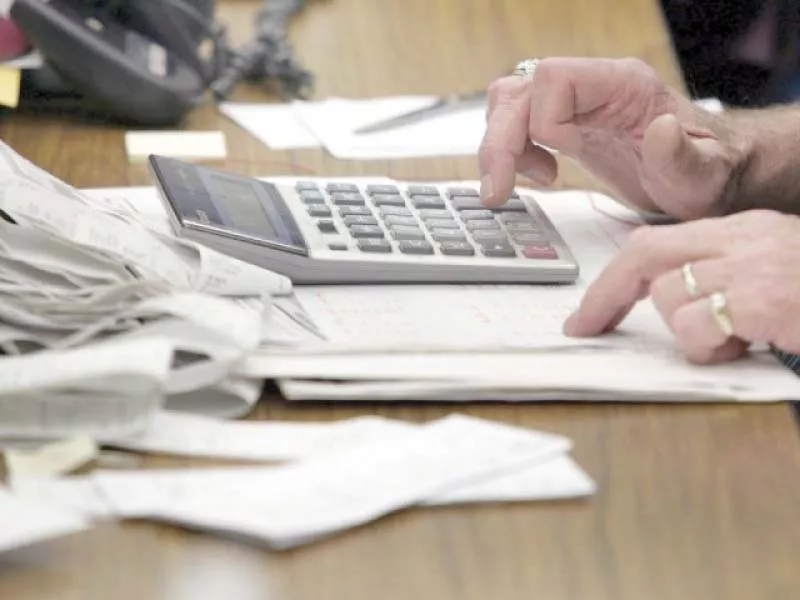Advisory firm says receipts will be around Rs4tr due to closure of trade, industry
Advisory firm says receipts will be around Rs4tr due to closure of trade, industry
ISLAMABAD: The Federal Board of Revenue’s (FBR) tax collection may fall short of the target by a whopping Rs1.5 trillion to only Rs4 trillion in the aftermath of coronavirus outbreak that will further increase the country’s debt burden, says an independent assessment.Tax assessment by Tola Associates, a tax advisory firm, is far worse than the Ministry of Planning’s projection of a shortfall of up to Rs600 billion in tax revenue against the revised target. The ministry’s forecast was based on input from the FBR that expected tax receipts of Rs4.6 trillion.
The FBR’s tax revenue is likely to remain around Rs4 trillion in fiscal year 2019-20, due to the closure of trade, services industries, lockdown and contraction of economic activities in light of the pandemic, which will exhaust fiscal space of the country, according to Tola Associates.
For 2019-20, Prime Minister Imran Khan had agreed to a Rs5.5-trillion tax collection target, which was expected to be missed by Rs900 billion even before the coronavirus outbreak due to unsatisfactory performance of the FBR.
The FBR has collected Rs3.063 trillion in July-March of current fiscal year, falling short of the nine-month target by Rs693 billion.
However, Tola Associates claimed that the actual tax collection by the FBR in the July-March period was Rs2.838 trillion as reported receipts also included outstanding sales tax refunds of Rs150 billion and tax advances worth Rs75 billion.
The tax advisory firm pointed out that the FBR needed to collect Rs2.4 trillion within the next three months, which was next to impossible.
In the last fiscal year, the FBR received Rs3.829 trillion in taxes, which were lower than the preceding year’s collection despite two mini-budgets introduced during the course of the year.
In the current fiscal year, the government had imposed Rs735 billion in additional taxes to achieve the Rs5.5-trillion target.
Even if economic activities had remained unaffected, the FBR would have missed its annual target by at least Rs900 billion to Rs1 trillion.
In the last fiscal year, Pakistan’s public debt-to-gross domestic product (GDP) ratio deteriorated to 88%, which is now expected to worsen further due to the anticipated shortfall in tax revenue.
It is projected that the country’s fiscal deficit would be around 9-9.5% of GDP due to a large revenue shortfall and increase in expenditures, according to the assessment.
The independent assessment has also projected best and worse-case scenarios in terms of economic growth.
It has projected that the economy may shrink 0.4% in the worst-case scenario and can grow 1.3% in the best-case scenario. The World Bank has also anticipated 1.1% GDP growth in the current fiscal year due to Covid-19 implications.
The best-case scenario depicts that the current lockdown and tight economic situation will gradually ease, while the worst-case scenario displays that the current situation will persist until the end of FY20.
It stated that reduced production of cotton, unseasonal rains and delay in Kharif crop-sowing season due to the coronavirus harmed the crops.
Moreover, livestock, forestry and fishery sectors are expected to underperform due to the lockdown and lower economic activities are expected in these areas in the last quarter of FY20. Overall, the agriculture sector is expected to grow only 0.19%. Mining and quarrying, electricity distribution and slaughtering are expected to grow as per their targeted growth rates.
Large-scale and small-scale manufacturing is expected to post negative growth. The construction sector is likely to slow down due to the lockdown and shift in investment priorities of both businesses and population due to the pandemic.
Overall, the industrial sector is expected to either contract 1% or register a nominal growth of 0.34%.
In the services sector, wholesale and retail trade is not expected to grow, instead, activity is expected to decline due to the closure of wholesale and retail markets, and due to disputes arising out of amendments introduced vide Finance Act 2019.
Consumption in Ramazan, including annual Eid shopping, is also expected to go down drastically due to the low purchasing power of the public at large, lockdown and erosion of savings during the lockdown, according to Tola Associates.
The overall services sector, which contributes approximately 61% to GDP, is likely to shrink 0.4% and may grow 1.9% in the best-case scenario.
The tax advisory firm has also suggested revisiting the International Monetary Fund (IMF) loan programme. The IMF has this week postponed approval of the second review of the programme that may complicate matters for economic managers.
Published in The Express Tribune, April 9th, 2020.
Like Business on Facebook, follow @TribuneBiz on Twitter to stay informed and join in the conversation.


COMMENTS
Comments are moderated and generally will be posted if they are on-topic and not abusive.
For more information, please see our Comments FAQ